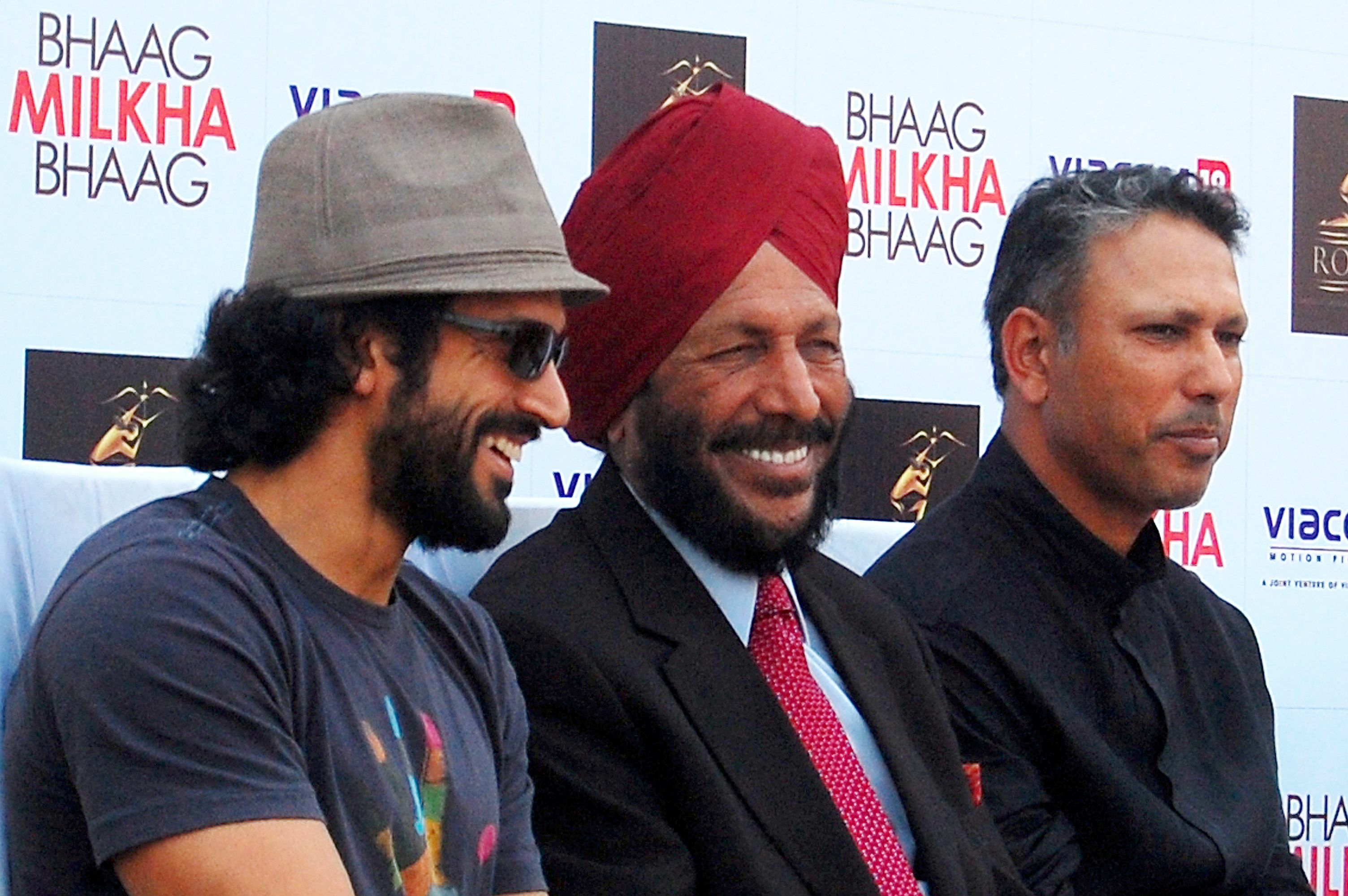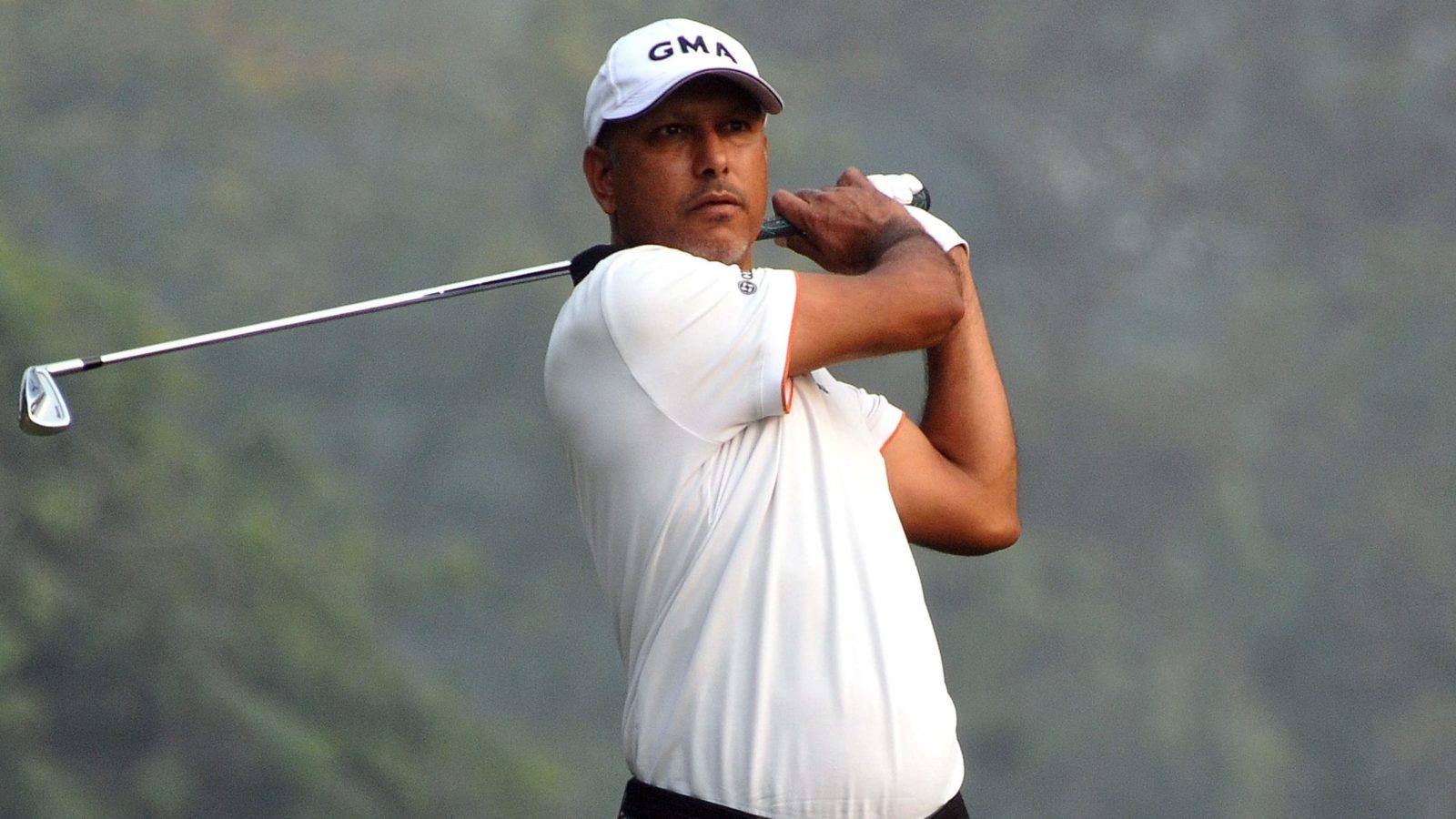When Jeev Milkha Singh became a professional golfer in 1993, his father was travelling with him to the US. “I presented him [with] my first cheque and had my first drink with him,” he says, to mark the occasion. This was momentous for Jeev, a teetotaller who was even nicknamed ‘OJ’ through college, as he didn’t drink alcohol and favoured orange juice instead. “I have that comfort level with my parents. They treated me as a friend and we developed the trust that is so important between a parent and child.”
That he hails from one of India’s premier sporting families (his father is the much celebrated ‘Flying Sikh’ Milkha Singh, the Olympian sprinter whose life story inspired the blockbuster film Bhaag Milkha Bhaag, and mother Nirmal Kaur was the captain of the national women’s volleyball team) has many obvious advantages. Were there any pressures growing up in such an illustrious family? “You had to be very careful of the way you conduct yourself.”
So the right values were ingrained, the stress was on working hard and being a self-made person. “My parents always told me that you have to earn the respect.” The importance of discipline and routine couldn’t have been emphasised more.
“My love for the profession and desire to do well are the two things that push me. I’m not afraid of doing things that I love doing,” says the first Indian to join the European tour in 1998. Jeev has since then won four events on the European tour, making him the most successful Indian on the tour. He was honoured with the Arjuna Award in 1999, only the third golfer to be so recognised. In 2006, he broke into the top 100 of the Official World Golf Ranking, the first Indian to do so. Both father and son have been honoured with the Padma Shri, the fourth highest civilian award in India, making them the only family in India with two of this award.
Growing up in Chandigarh, where he is based even now, Jeev accompanied his father to the golf course regularly and picked up the game at a tender age. The routine was set: school, tuitions, sports. He was 14 when he started going to the gym on alternate days, and by 15 he was introduced to the benefits of yoga. “It has been 32 years… even today I practise 30 minutes of yoga in the morning whether on tour or at home with a lot of stretching, and put in another half hour in the evening.”
Staying centred is important in a game that is about concentration. “As a professional golfer, you have to stay positive. Lot of things go through your mind, a lot changes within 30 minutes to another 30 minutes in the game,” says Jeev. His technique? “Focus on your breathing: There are too many thoughts on the golf course. Inhale, exhale, get zeroed in. Focus on the positive. Human beings go through negatives in life, but the choice is yours to take out the positive. Education teaches you to make the right choices. I choose positive company consciously. Life is beautiful, you might as well stay positive and get the most out of it.”
His favourite book “that has helped me quite a bit in my life” is The Power of Your Subconscious Mind by Dr Joseph Murphy. “This wonderful book relates to everything in life. I like to read a paragraph and a half every day. I like to start my day and finish my day with that so that when I wake up it is on a positive note and when I go to bed it is positive.” He also likes to listen to the path (Gurbani recitation): “It gives a good start to the day, and calms me down.”
Over time, Jeev has realised the value of staying positive. “I have gone through a lot in life. To keep going, to stay motivated, one has to nourish the mind. It is not automatic, you have to work on it. The mind is the most powerful thing for a human being. Why can’t we take out 15 minutes to nourish our mind?”
He has had his share of downs from injuries that is common for all sportsmen. His way of staying fit, besides yoga, stretching and massages; is natural healing. “I’m a firm believer in it. My haldi (turmeric) and crushed pepper travel with me on the road too, as do my yoga mat, theraband and roller. I don’t like to take antibiotics or allopathic medicines. I have moringa powder which is good for health and keeps the immune system going. All these started from India and today the whole world is following it.”
He has a simple routine that he likes to stick to, whether at home or on tour. Wake up by 7, make his coffee, have a shower, do some yoga for half hour and a lot of stretching, 10 minutes of meditation, reach the golf course, have breakfast, practise shots before game begins. A similar routine is set for the evening. “I don’t follow sports, I switch off after coming home. In fact I don’t know other athletes! I watch a lot of movies on Netflix. Sleep for seven to eight hours, it is very important for the human body to function at optimum levels and I’m brand new in the morning.”
“I spend 35 weeks in a year on tour so when I come home I like to have home-cooked meals, sarson ka saag and makke ki roti being my favourites.”

His passion for the movies is well-known. It was he who convinced Milkha Singh to give the story of Bhaag Milkha… based on the autobiography The Race of My Life for Re 1 to the producers of the film. “He has gone through a lot of hardship, fought all odds to get it right, single-mindedly decided that sports is what he wants. The film has a good message for the youth of today that for a child it is very important to be outdoors, to make an effort to play a sport. It relates to our parents’ generation as well as the youth and has made a lot of difference.”
Today he is involved with the Milkha Singh Charitable Trust founded in 2003 which helps the needy and sportspeople. “If you do charity, you don’t talk about it, it takes away the cause,” says Jeev.
“I had opportunities to open academies all over the country but I don’t have the time, it doesn’t make sense, if I can’t invest the time required,” says the only Indian golfer to have a tournament named after him (Jeev Milkha Singh Invitational) that began in November 2018.
For his son Harjai, who seems to be already putting in his father’s footsteps, he hopes to instil the “right values, tell him that nothing will come easy or without hard work. As parents we should give the opportunities and education, and allow the child to follow whatever he loves doing. If he is making the choice, he is going to give it his best. I can only advise, the decision will be his.”
Taking both criticism and adulation in his stride, Jeev has stayed focussed on making the most of the sport. “I’m very fortunate that I’m making a living out of what I love doing. Not many people have that. And that’s what makes you succeed in life,” he says. “I have a few years left [in the game], I still want to win on the big stage. I want to win a game before I turn 50, I tell the boys that it is not over till you say it is over, I’m going to prove it by setting an example.” Of course, then there’s the Seniors Tour.
Want to share your story of how you thrive? Write to us at [email protected]
More on Thrive Global India:
Vishy Anand May Look Calm, But There’s a Battle Inside
Five Rules from Amitabh Kant’s Success Handbook
Sports is an Integral Part of My Creative Process: Vishal Bhardwaj


